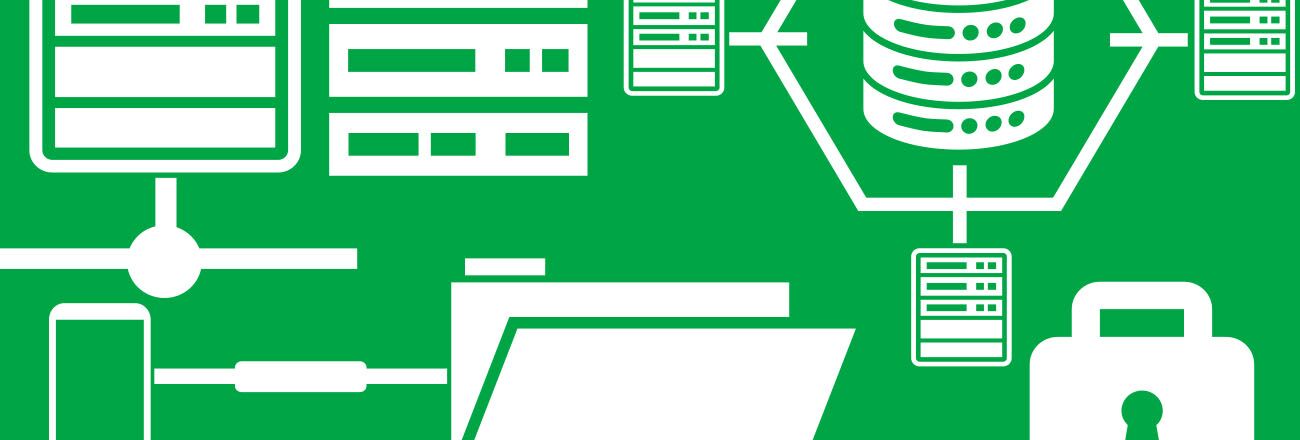
Dedicated hosting provides full access to server resources (CPU, Memory, Disk Space) dedicated to a single customer for use as needed. Dedicated hosting is considered single-tenant, meaning one owner or administrator controls the entire server and its resources.
What are the benefits of dedicated hosting?
There are many benefits to dedicated hosting but, like all things, the benefits are relative to the use case and the needs of the person or business using the service. Some of the benefits are on-demand deployments, single-tenancy, consistent performance, security and compliance, and customization. .
On-demand deployments:Dedicated servers can be deployed, in many cases, in a matter of minutes or hours. SingleHop, an INAP company, was the first provider to automate the deployment of bare metal servers in 2006, and many other providers have since followed suit. If traffic to your website happens to increase dramatically, you can quickly deploy additional dedicated servers through a self-serve portal or by submitting a request to the server hosting provider. The process of on-demand deployments reduces the friction between customer needs and the fulfillment of those needs.
Single-tenancy: This means that the dedicated server is used by only one customer that has full access to all resources on the hardware to manage as they please. This is a great option for high input/output intensive applications that demand consistently high performance such as voice (VOIP) and gaming services.
Consistent Performance: Because of the single-tenant nature of dedicated hosting and the direct access to the hardware resources such as CPU, memory, and disk, applications can count on a high performance and consistent experience. . There are still potential bottlenecks to consider, but they are more directly in your control because you have direct access to all the hardware resources.
Security and Compliance: The inherent security that comes with dedicated hosting is due to the single-tenant nature of this deployment model. By now, you’re probably seeing a theme with this. However, multi-tenant architectures have become substantially more secure over the last five years. That being said, use cases that are highly dependant on stringent security and compliance tend to favor the peace of mind that dedicated hosting environments bring.
Customization: Dedicated hosting is highly customizable, allowing you to choose how much and what type of CPU, memory, and storage you need. Most dedicated hosting providers will advertise standard options, but then give you the option to customize to the specific needs of your application workloads. If you need to upgrade or downgrade after the initial setup, you also have this option. This flexibility in customization allows you to control for changing application performance requirements over time.
What are the drawbacks of dedicated hosting?
While dedicated hosting is great for many applications and workloads, there can be drawbacks if not set up properly or the needs of the application are not thoroughly vetted prior to selecting dedicated hosting as the best solution. Some of those drawbacks include fault tolerance and scalability.
Fault tolerance: Yes, you can set dedicated hosting up in a way that allows you to achieve fault tolerance; however, this is not an out-of-the-box solution. Take, for example, a single dedicated server. Inside that dedicated server you can configure your hard drives in a RAID set-up to minimize the risk of losing data if one or more drives fail. However, this is the bare minimum. But what if another critical component dies? The risk of downtime is much greater if you are running on a single server. Unlike cloud solutions, dedicated hosting does not have the built-in fault tolerance attributes that substantially reduce the risk of unplanned downtime.
Scalability: Earlier I mentioned on-demand deployment as one of the benefits for dedicated hosting. If that’s the case, why is scalability a potential drawback? The answer relates back to built-in features vs. features of capabilities that take more work to set up. With dedicated hosting, you can have servers deployed in 60 minutes.. With a cloud solution, you can instantly deploy new virtual machines if the need arises. You can even automate this process based on triggers from APIs that tie into your applications. Workload spikes, spin up a new vm. This attribute is not as prevalent with dedicated servers. For applications with highly variable workloads — web or mobile applications, for instance — that hour is a make or break difference, placing dedicated hosting at a distinct disadvantage.
What can dedicated hosting be used for?
There are many use cases that are perfect for dedicated hosting, but I will focus on just a few of them, such as gaming, VOIP, shared hosting and VPS hosting.
Online Gaming: If you’ve ever played games online, you know that even the slightest bit of lag in the gaming experience can completely ruin a good time (or infuriatingly spoil an imminent multiplayer victory). That lag some gamers experience is caused by bottlenecks within the environment the game is hosted. These bottlenecks could be CPU related, memory, or network related. Dedicated hosting is usually a better choice for handling the first two potential bottlenecks. For games that require a lot of CPU-intensive throughput, dedicated hosting is ideal.
VOIP: Voice Over IP services are also input/output intensive and require direct access to hardware resources. Again, dedicated hosting limits the chances of some of the bottlenecks that could cause poor voice quality to the end users of the VOIP service.
Shared Hosting and VPS Hosting: Think of shared and VPS hosting as apartments or condos inside of the larger building. Dedicated hosting is the larger building and then shared and VPS hosting accounts are the smaller structures within. The reason this use case makes a lot of sense is because the resources that are divided up for the smaller accounts can be more directly tied to the underlying hardware, whereas in a cloud hosting environment there is another layer between the two (the hypervisor) that can cause performance degradation. Most shared hosting providers are simply renting dedicated servers and then slicing those up into hundreds or thousands of shared accounts.
How is dedicated hosting different from cloud hosting?
Dedicated hosting is different from cloud hosting primarily due to the single-tenant nature of dedicated hosting. There is no one size fits all hosting solution, so paying careful attention to the needs of your applications is the most important thing when deciding to go cloud over dedicated hosting. If your business fits into one of the use cases above, or something similar, dedicated hosting could be a great fit. If you’re still not sure, contact one of our dedicated and cloud hosting consultants and we’ll be happy to guide you in the right direction.
What to consider when evaluating dedicated hosting providers?
There are a few key dimensions to consider well before choosing a dedicated hosting provider, and those include reputation and reliability, choice in hardware, SLAs and overall value.
Reputation and reliability: Do your diligence up front. Talk to others that may have had experience with a particular provider or providers. Read reviews online. Reach out to their sales and support teams to see how they respond. Get a good sense of whether or not the provider is reputable and will take care of your needs once you become a paying customer. Beyond that, making sure the provider has a reputation for being reliable in terms of uptime and support is critical. Some providers offer visibility into uptime and support metrics on their websites, so be sure to take a look at those and ask questions if anything raises a red flag. In some cases, it’s not necessarily that a provider has had issues in the past (every provider in the history of the internet experienced downtime), but how they’ve responded to and resolved issues.
Choice in hardware: One of the many benefits of dedicated hosting is the ability to choose and customize your hardware components. Make sure you’re able to customize to your needs and that the dedicated hosting provider has sufficient inventory to support them needs as your business grows.
Service Level Agreements (SLAs): The reality in technology is that things will go wrong at some point. It’s not a matter of if, but when. Finding a dedicated hosting provider with easy to understand and generous SLAs is important. SLAs are basically the up-front promise the provider is making about the quality of their service. If they fail to meet those quality standards then they will credit you back for services you paid for. Always be sure to review the provider’s SLAs and make sure they are easy to understand and that the credit schedules seem reasonable based on the dimension of service they are related to.
Overall Value: There’s no magic formula for calculating value, but the general question to answer is whether or not the reliability, features, support and performance you are getting for the price you are paying is reasonable. If you’re paying out the nose for a service that has regular downtime, slow support response times, and weak SLAs, then you’re probably not getting a great value. On the flip side, if the service is a little more expensive but you simply never have to worry about it, maybe it’s worth it. That is for you to decide, and often comes down to the criticality of your workloads and applications.
How much does dedicated hosting cost?
Dedicated hosting typically starts in the low $100 per month range for enterprise-grade hardware and service, and can go up to thousands of dollars per month for a single server with premium components. The range is wide and highly dependent on the needs of the applications running in the environments.
Updated: January 2019


